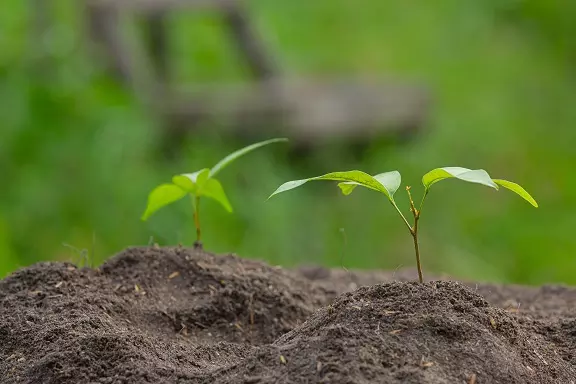
To boost private cultivation, Karnataka to alter its sandalwood policy
The sandalwood trees have come to the brink of extinction due to rampant smuggling arising from high demand that drives up prices; there are other problems too

Amid a major fall in production, Karnataka is set to change its sandalwood policy, primarily to protect the interests of growers and in the hope that this will sharply boost output.
The new policy will facilitate private cultivation in Karnataka, according to official. It is proposed to simplify the Karnataka Forest Rules for processes like harvesting, transportation and sale.
The Department of Forestry, Biology and Environment wants to increase the sandalwood plantation area involving corporates to check the steadily falling production.
The policy was created in 2001 to allow farmers to grow sandalwood trees. It was amended 20 years later to regulate cultivation, harvesting, and trade of sandalwood.
Now the policy is to be amended in the interest of sandalwood growers, Forest Minister Ishwar Khandre said.
Indian monopoly
Sandalwood of commercial importance comprises 16 species. A whopping 85 percent of the world's sandalwood production comes from India. But sandalwood trees have come to the brink of extinction due to rampant smuggling arising from high demand that drives up prices. Then there are other problems too.
Farmers are dissatisfied with the pricing mechanisms and market conditions for Sandalwood. They feel the current policy doesn’t adequately protect their economic interests, especially given the long gestation period of sandalwood trees.
Channa Reddy, a grower in Kolar district, said they want policies that promote sustainable cultivation practices, ensuring the long-term viability of sandalwood resources. “Simplifying and streamlining the regulatory processes for sandalwood cultivation and trade is our priority,” Reddy told The Federal. “The current bureaucratic hurdles are cumbersome and time-consuming.
"We demand stricter enforcement measures and improved security for our plantations due to theft and illegal trade of sandalwood," he added. The authorities admit these are genuine concerns.
New policy
The new policy will look at improving seedling stock production, increasing production of sandalwood saplings in forest plantations, producing saplings on private land, better protection for trees and improving farming model. Other areas which the policy will cover include online system for simplification of sandalwood harvesting, transportation, sale, felling and transportation.
Growers also want simplification of sandalwood classification, capacity building in sandalwood conversion besides promotion and sale of handicrafts through e-marketing.
Minister Khandre said the government will look into the problems related to the protection, harvesting and transportation of sandalwood trees grown by farmers. “Our aim is to solve the problem of growers.”
The Forest Department will conduct a comprehensive study regarding saplings of poor quality grown in some of its nurseries, Khandre said. Under the new policy, farmers will be protected from organised smugglers. “The trees will be fitted with microchips to alert the authorities when someone tries to cut down sandalwood trees,” an official told The Federal.
Farmers’ issues
Karnataka is known for high-quality sandalwood, particularly in Mysuru and Western Ghat area.
Many farmers in Karnataka grow sandalwood trees on their land. As the cultivation is regulated by the Forest Department, those interested in growing sandalwood need to get permits. The Forest Department conducts periodic auctions of sandalwood logs. Registered buyers, including private businesses and government agencies, can participate in these auctions.
Sandalwood is processed into various products including essential oils, perfumes, incense sticks and handicrafts. Many businesses in Karnataka engage in value addition by manufacturing these products. Karnataka's sandalwood products are in demand both domestically and internationally. They are exported to China, Japan and the Middle East among others. Sandalwood is also used in traditional Indian medicine and cosmetics.
A major challenge for those in the business are illegal logging and smuggling.
Long gestation
The new policy will also address the needs of small-scale sandalwood growers who might require financial or technical assistance.
Farmers seek support for research and development in cultivation techniques, disease and pest management, and improved genetics to enhance tree growth and yield. Farmers also want a policy that facilitates fair and transparent market access.
One major concern is that sandalwood trees take many years, often decades, to reach maturity and produce valuable heartwood. This extended growth period requires patience and long-term investment.
Growers naturally have to invest in security measures to protect their plantations.
“Compliance with government regulations and obtaining necessary permits can be a bureaucratic and time-consuming process. Any non-compliance can lead to legal issues,” said a grower, Rame Gowda, from Moodigere in Chikmagalur district.

